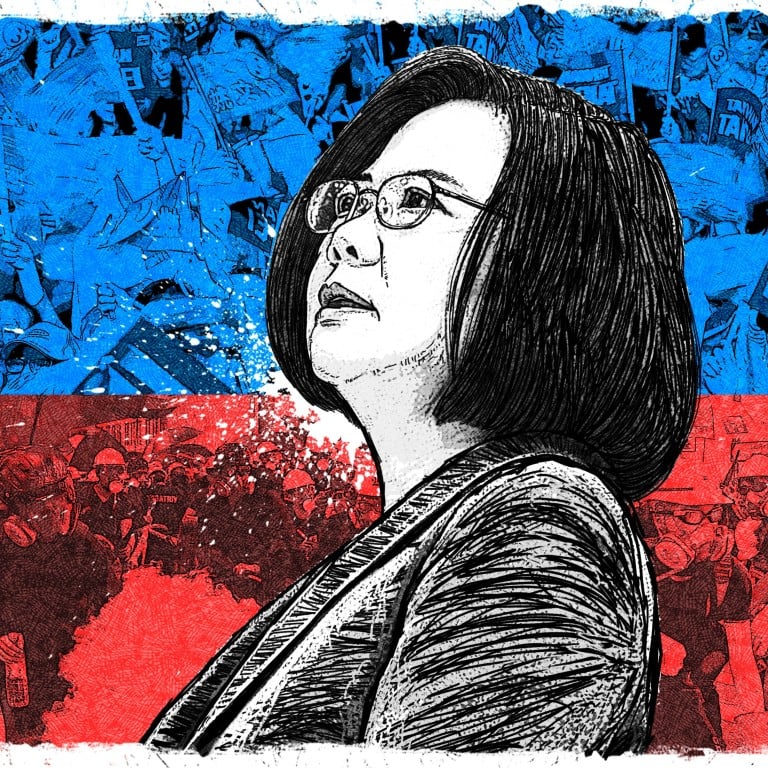
Taiwan leader Tsai Ing-wen poised to complete improbable political comeback
- Incumbent president heading into election with a substantial lead in polls after earlier trailing main rival Han Kuo-yu by 30 points
- In the third of a five-part series we look at the DPP’s candidate in a presidential race that is set to have a significant impact on Beijing’s relations with both Taipei and Washington
It was a grim-faced Tsai who led a group of party officials in a bow to supporters as she announced her resignation as the party’s leader after her ruling DPP suffered its biggest electoral defeat in history in the local government polls on November 24, 2018.
“I will take complete responsibility for the outcome of today’s local elections,” Tsai said at the time. “I resign as DPP chairperson. Our efforts weren’t enough and we let down all our supporters who fought with us. I want to express our most sincere apologies.”
DPP lost its traditional stronghold in the city of Kaohsiung for the first time in 20 years and suffered a resounding defeat in the island’s second-largest city Taichung. Overall, the party retained control in just six cities and counties, compared with the 15 won by the mainland-friendly Kuomintang (KMT).
The local elections were seen as a midterm test for Tsai, as she faced a backlash over domestic reforms and concerns about deteriorating ties with China.
“No one expected she would be able to turn the tables, given such a grim situation for the DPP and her flagging popularity due to her unpopular reforms at that time,” said Fan Shih-ping, a professor of political science at National Taiwan Normal University.
But in just a year, Tsai has turned herself into the front-runner in the race, going from trailing Han by at least 30 percentage points in the opinion polls to a comfortable lead of more than 20 points over the populist Kaohsiung mayor. Before May last year, Han had been seen as likely to become the island’s next leader, Fan said.
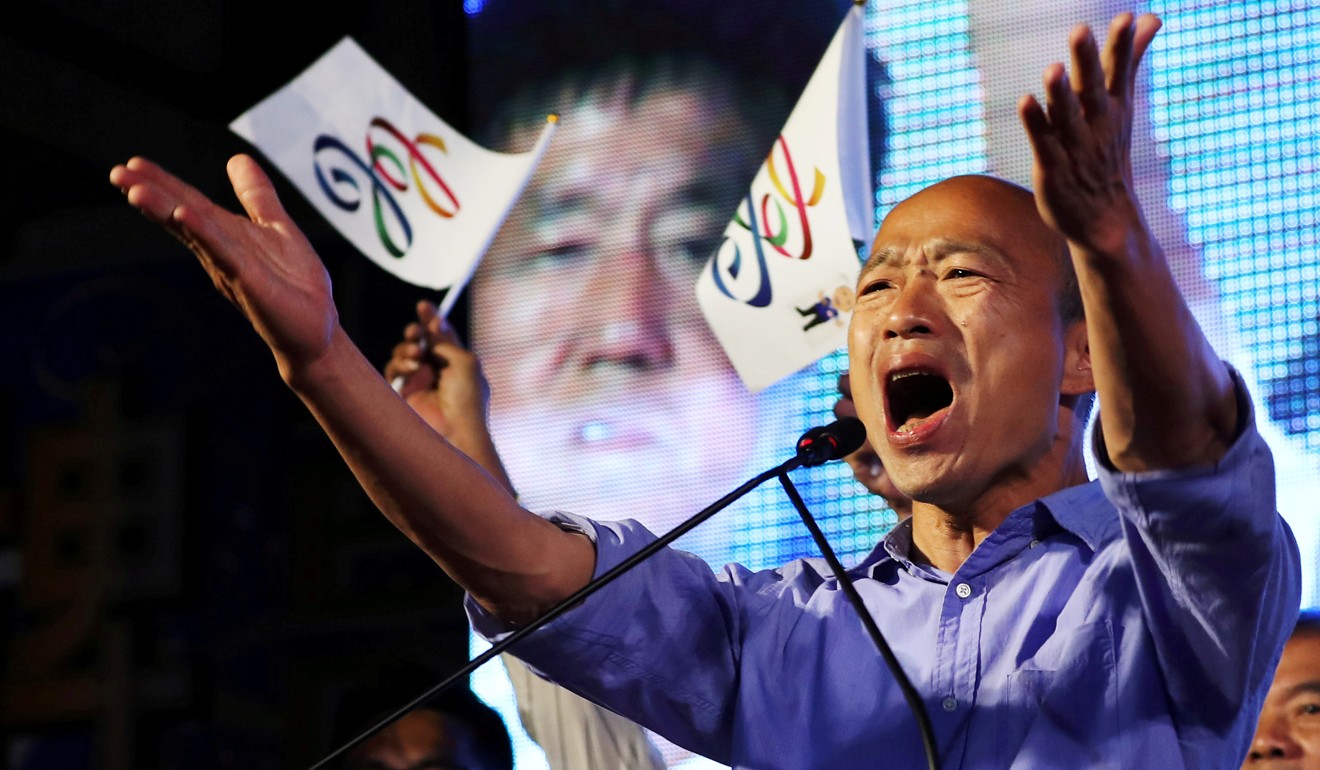
But Tsai, 63, who has 15 years’ experience as a trade negotiator and led Taiwan’s Mainland Affairs Council before heading the DPP, has proved herself to be a shrewd tactician. At the start of last year, she turned remarks by Xi into an opportunity to reverse her political fortunes.
Against the backdrop of Xi’s proposal, Tsai has successfully reframed the 2020 poll as a vote to save Taiwan from being annexed by the mainland and islanders from losing their ability to identify themselves as Taiwanese, according to observers.
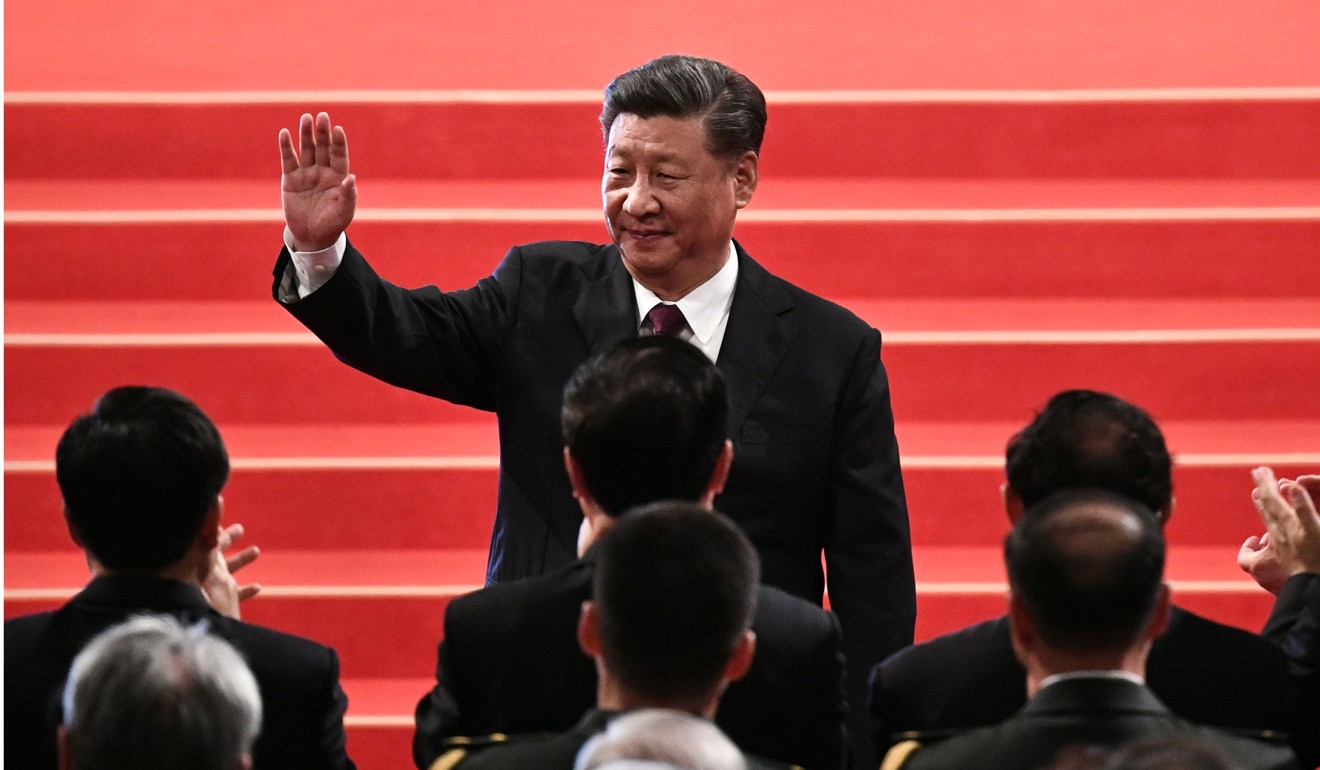
“That [changing of the narrative] has diverted voters’ attention from her unpopular labour and pension reforms,” said Wang Kung-yi, a professor of political science at Chinese Culture University in Taipei.
Tsai had launched three “smokeless” wars to achieve her bid for a second four-year term, he said.
The first was a psychological war – playing to voters’ worries about a mainland takeover, while the second was a media war designed to trigger voter anger over a campaign of disinformation allegedly orchestrated by Beijing to interfere with Taiwan’s internal affairs and elections, Wang said.
The third was a legislative war designed to draw the public’s attention to the need to revise or institute security laws to strengthen the island’s safety network against possible mainland political infiltration and a takeover, Wang said.
“All these help build up the impression that Tsai is the one to safeguard Taiwan from a Chinese takeover – a situation that would [be] possible if Han – seen as a mainland-friendly candidate – was elected president.”
Tsai has been able to pursue this strategy because Xi gave her the ammunition to do so, analysts say.
“She was smart enough to pick up the gun from Xi Jinping after the mainland leader proposed cross-strait unification talks with one country, two systems as the framework for the future union,” said Yen Chen-shen, a senior research fellow at National Chengchi University’s Institute of International Relations.
“Then Carrie Lam’s failed attempt to push through the extradition bill, which ignited months of anti-government protests, allowed her to pick up an even more powerful gun to play up the sense of crisis over a possible Chinese takeover if she lost the election to Han.”
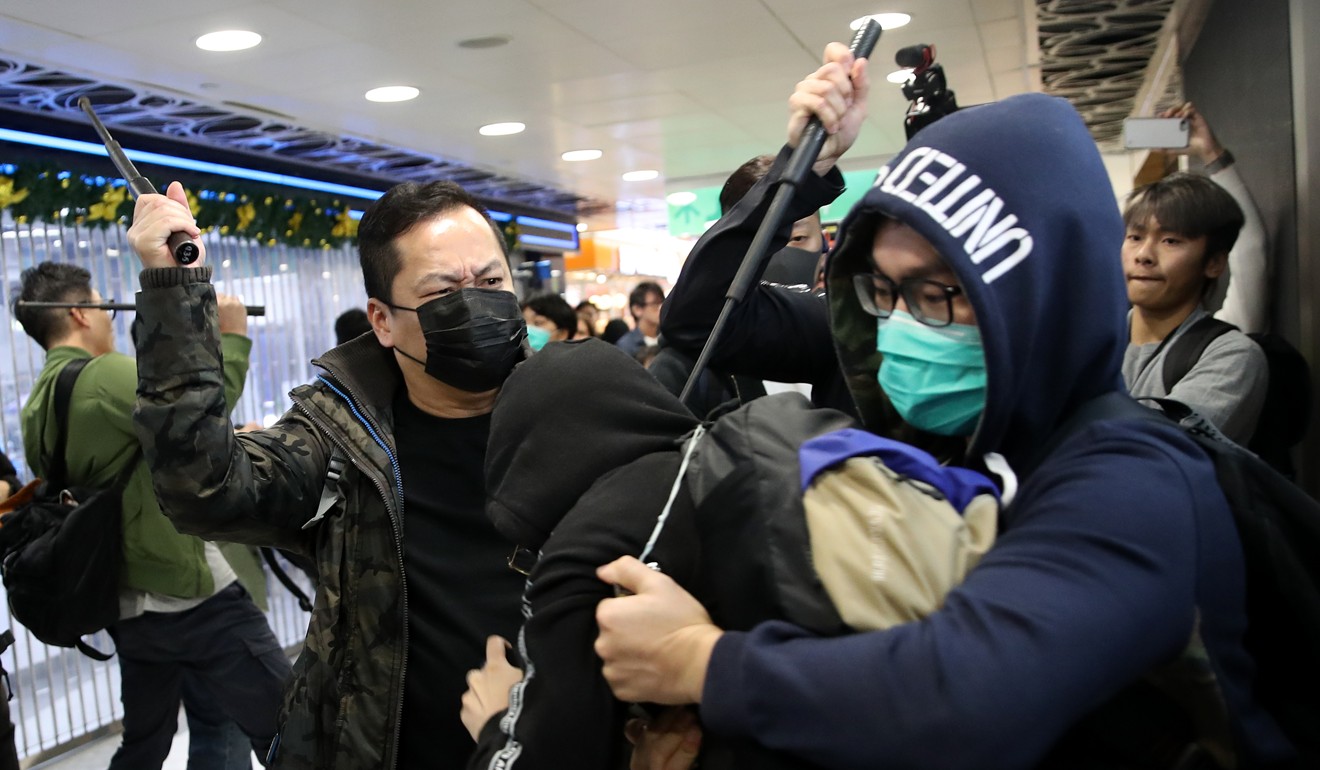
Since June, Tsai’s campaign has been able to argue that “Hong Kong today will become Taiwan tomorrow” to emphasise to voters that fantasising about a warm relationship with Beijing is out of the question because the island would end up being swallowed by the mainland.
“China’s objective is clear: to force Taiwan to compromise our sovereignty. Moreover, at the beginning of last year, China’s President Xi Jinping proposed the one country, two systems model for Taiwan,” she said.
“Over the past six months, the world has seen how the situation in Hong Kong has continued to deteriorate under one country, two systems … Hong Kong’s people have shown us that one country, two systems is absolutely not viable.”
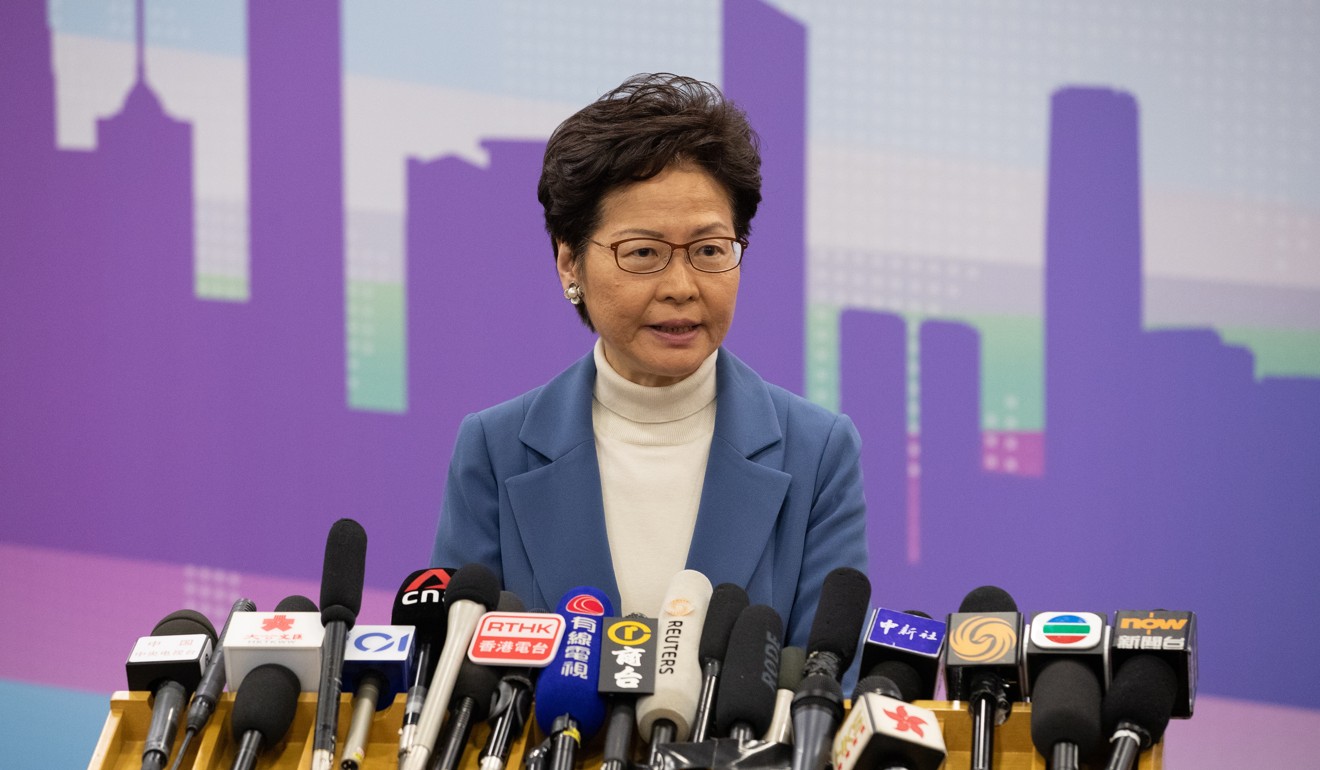
Tsai’s painting of herself as the leader best equipped to safeguard Taiwan’s sovereignty has received strong approval from young voters who tend to be patriotic and idealistic, analysts said.
“She has been able to use the Hong Kong unrest to spin the mainland threat, which helps consolidate not only the support from pro-independence supporters, but also young people who are born Taiwan-centric and tend to be more idealistic,” said Niu Tse-hsun, a professor at Chinese Culture University.
Getting the support of young voters is considered a must for victory in the presidential and legislative elections that will be held concurrently on Saturday.
According to the latest survey by Taipei-based Commonwealth magazine, 82.4 per cent of people aged 20-29 identified themselves as Taiwanese, while 49.4 per cent thought Taiwan should declare independence.
Overall, 58.1 per cent of respondents supported maintaining the status quo, while 27.2 per cent wanted independence and 6.2 per cent wanted unification with the mainland.
The same survey of 1,076 people found that 90 per cent felt the one country, two systems model was not applicable in Taiwan.
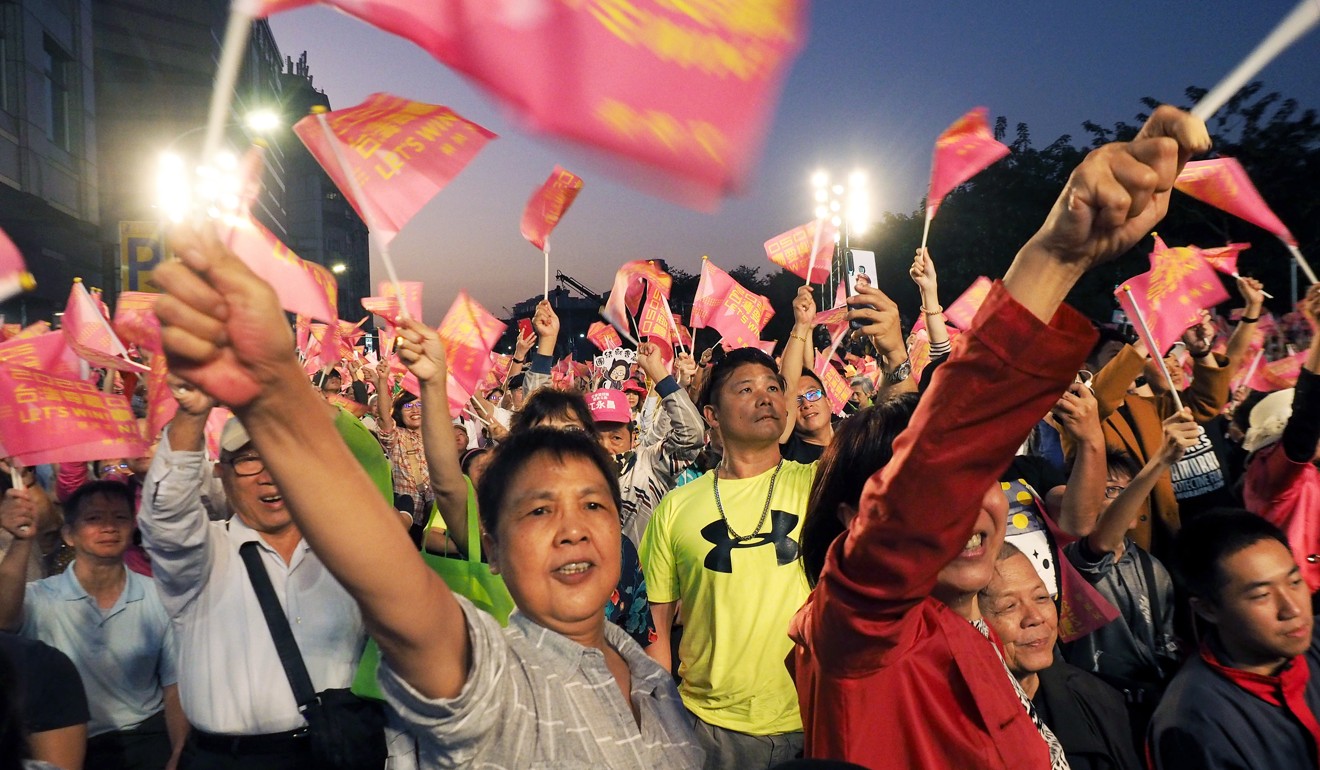
Analysts said Tsai’s efforts to position herself as an open-minded leader on issues such as LGBT rights – Taiwan became the first place in Asia to legalise same-sex marriage earlier this year – have won her popular support among young voters.
“She knows how to interact with young people, and her somewhat serious yet carefree attitude in chatting with the young people through social media networks have made her an idol for hundreds and thousands of fans,” Niu said.
Tsai has more than 2.5 million Facebook fans.
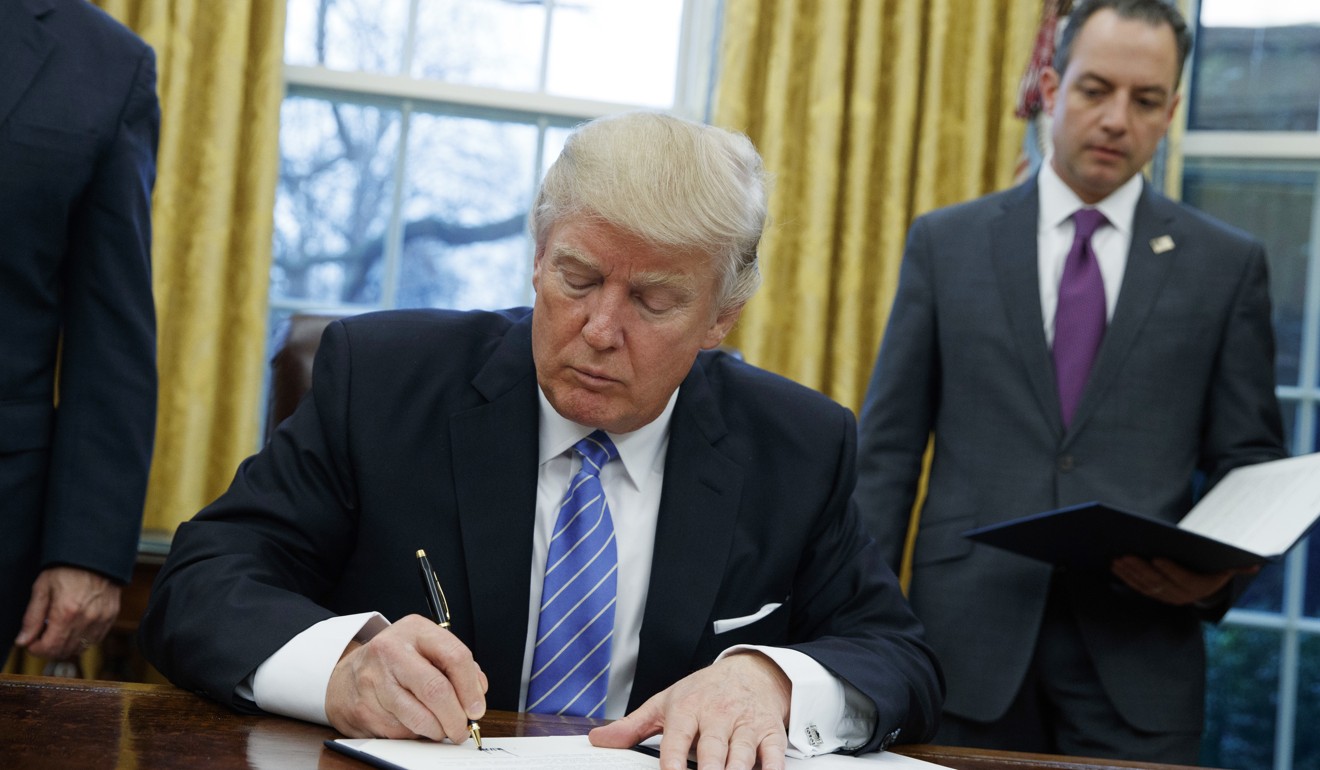
Analysts said the United States’ strong support for Taiwan in the past few years has also boosted Tsai’s confidence that she can beat Han as well as People First Party Chairman James Soong Chu-yu, who declared his candidacy in November, just two months ahead of the poll.
“Various legislations and policies introduced by the US have greatly benefited Tsai in her election campaign,” said Michael You Ying-lung, chairman of Taiwan Opinion Foundation in Taipei.
He referenced US President Donald Trump’s signing of the Taiwan Travel Act and the National Defence Authorisation Act to bring about high-level visits and exchanges by government and military officials as well as the approval of billions of US dollars worth of arms sales for the island.
“Our relations with the US have been the best ever,” Tsai said at a campaign rally, playing up her success at securing strong ties between Taipei and Washington.
The US switched diplomatic allegiance to Beijing from Taipei in 1979, but maintains substantive relations with the island, including the provision of arms to counter mainland military threats.
Though Washington has said it maintains a policy of non-involvement in Taiwan’s elections and has no preference regarding who becomes its next leader, the Trump administration has been outspoken in accusing Beijing of attempting to influence Taiwan’s election through disinformation and intimidation.
This is the third part in our series on Taiwan’s election. Read the first part, on the crucial role young and first-time voters are expected to play, here, the second part, on Han Kuo-yu’s uphill task, here, the fourth part, on the Hong Kong protests factor, here and the fifth part, on how relations between Beijing, Taipei and Washington are affecting the poll, here.

